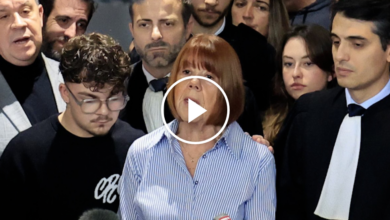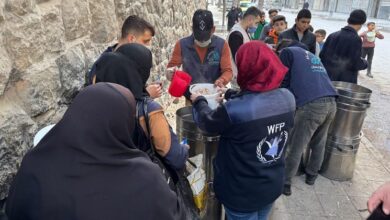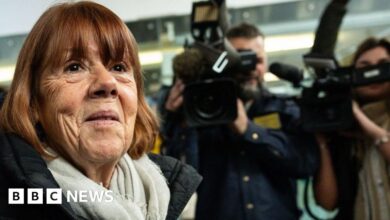Syria’s new rulers are politically astute
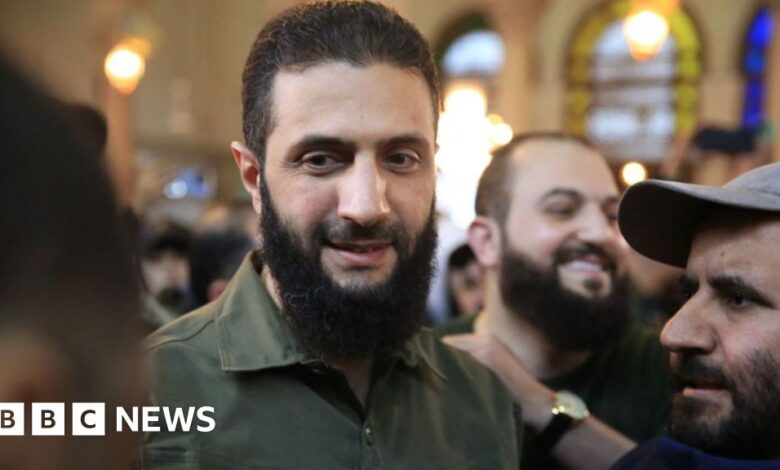
When I left London almost two weeks ago after the rebel coalition captured Aleppo – a stunning victory compared to what followed – I thought I would be reporting on a war.
The group known as Hayat Tahrir al-Sham, or HTS, has wiped out all that came before it, but I expect the regime to fight on, as it relentlessly lost ground in the years before the Russians intervened in 2015 to bomb. Towns and villages in Syria were reduced to ruins.
Nearly a decade later, it is clear that Bashar al-Assad’s Russian, Iranian and Lebanese allies have other wars to think about.
But while the regime struggled with reluctant conscripts, it could always find Syrians willing to fight and die for it, even at the height of the war after 2011, when Rebels control most of Damascus outside the city center and the road to Beirut.
I have visited people on the front lines many times.
Many of the most effective units are led by officers from Assad’s Alawite community.
In Aleppo around 2015, an Alawite general handed out glasses of perfectly distilled arak, poured from bottles that once held Jack Daniels.
He proudly said arak, an anise-based spirit popular throughout the Middle East, comes from the Assad family’s hometown in the hills behind the port of Latakia. Outside, his unit is attacking the rebel-held east of the city.
Not all are Alawites. In Jobar, a district on the edge of central Damascus, a Christian officer loyal to Assad from the Syrian Arab Army took me into the tunnels they had dug under the rubble to attack the rebels.
He said that the rebels also had tunnels and that they sometimes broke into each other’s tunnels, killing in the dark.
The young man has a tattoo of a cross on his wrist and another around his neck, and he spoke about how he had to fight to protect his community against jihadist extremists on the other side.
My instincts about the fighting spirit of Assad’s loyalists could not have been more wrong.
On Saturday, December 7, I went to bed after hearing about the fall of Homs.
When I woke up, Bashar al-Assad was on his way to Russia and rebel fighters were starting to celebrate in the streets of Damascus.
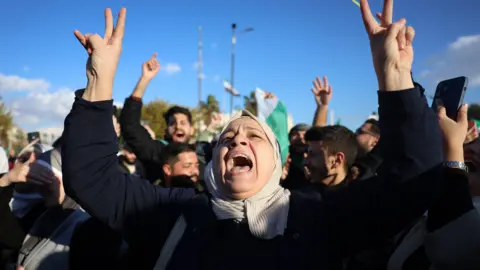 EPA
EPAThey fired more bullets into the air in celebration than in anger at Assad loyalists who were fleeing for their lives.
I saw hundreds of cars lining up to leave the border with Lebanon, filled with disgruntled, defeated men and scared families.
The rank-and-file soldiers threw away their uniforms and weapons without firing a shot and went home.
The Assad regime has collapsed, hollowed out by corruption, cruelty and brutal disregard for the lives of the Syrian people. Even Assad’s Alawite community did not fight for him.
That’s why this Thursday night, instead of taking shelter from shelling on some cold street in Homs or Hama, as I expected, I walked through the marble hall of the presidential palace. President in Damascus with Ahmed al-Sharaa, a Syrian. leadership in practice.
He abandoned his military uniform and changed his wartime pseudonym, Abu Mohammed al-Jolani, to his real name.
Many Syrians doubt his claim that he has also swapped his old jihadi beliefs for a more tolerant form of Syrian religious nationalism.
It’s true that he severed ties with al Qaeda in 2016, after a long career as a jihadist in Iraq and Syria. But as I found in Assad’s palace, Ahmed al-Sharaa, a tall, quiet man in his mid-40s, doesn’t want to get too specific about the Syria he wants.
He appears to be very intelligent and politically astute. Like many astute politicians, he often fails to give a straightforward answer to a straightforward question.
He denies that he wants Syria to become an Afghanistan in the Middle East.
The Taliban, he said, rule “a tribal society. Syria is completely different.” Syria’s new rulers will respect the country’s culture and history.
When I asked whether women enjoy the freedoms they expect here, he said 60 percent of students at universities in Idlib, his power base, are female.
But he refrained from answering a question about the mandatory wearing of the hijab – Islamic dress – for women.
Damascus is abuzz with rumors of bearded HTS men ordering women to cover their hair.
I pointed out that there had been a huge controversy on social media after a woman asked to take a selfie with him and then pulled up her hood while taking the photo.
Conservatives criticized al-Sharaa for agreeing to be photographed with a woman who was not a member of his family. Liberals see her hood as a dark omen about Syria’s future.
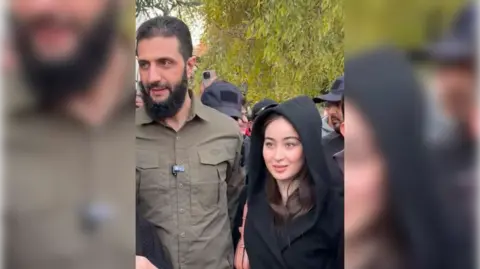 X
XIf he was upset by the question, he didn’t show it.
“I didn’t force her. But that’s my personal freedom. I want the photos to be taken in a way that suits me. I didn’t force her. It’s not like there are laws that apply across the country. But it’s a culture.” in this country that the law should recognize.”
Al Sharaa is referring to the fact that many Syrians, not just the majority Sunni Muslim community, are pious.
Many women wear headscarves. The point, secular Syrians will say, is having the ability to choose.
During half a century of Assad’s rule, Syrians have developed survival strategies that often include hiding their own emotions and doing what is expected of them.
Secular, worried and shocked Syrians showed me videos on their phones of mass prayers outside universities when students returned last Sunday.
Is it true piety, they ask, or do young people do as they are told because that is the way it has been here all their lives?
Al-Sharaa said it will all be a new constitutional matter to be decided by a group of legal experts.
Al-Sharaa’s critics will point out that when things settle down, he will choose people for the committee that he says will write new laws as well as a new constitution.
Ahmed al-Sharaa wanted to talk most about the oppression of the people by the old regime.
“Syria’s problems are so much bigger than the problems you are asking about. Half the population has been driven out of Syria or forced to relocate from their homes.
“They were targeted by barrel bombs, unguided bombs and more than 250 chemical attacks. Many Syrians drowned at sea trying to escape to Europe.”
He acknowledged that Syria has no chance of starting to stabilize and rebuild if sanctions are not lifted.
The initial sanctions targeted the Assad regime. To keep them, he said, means treating the victim like the oppressor.
He denies that the group he leads is a terrorist organization, currently considered an organization by the United Nations and most of the world’s most powerful countries.
Visits by foreign diplomats suggest that changing both sanctions and the terrorist list may be feasible.
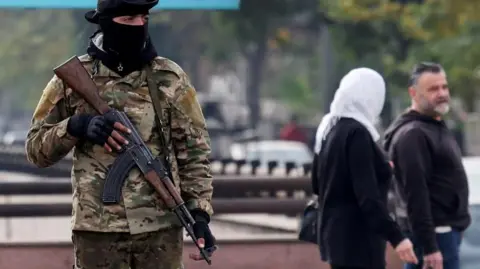 Reuters
ReutersHe was dismissive when I pointed out that I knew diplomats had told him that changing that status would depend on evidence that he was keeping his promise to respect minority rights and run an inclusive political process.
“The important thing for me is that the Syrian people believe me. We promised the Syrian people to liberate them from this criminal regime and we did it. This is the first and last important thing To me.
“I don’t care much about what will be said about us abroad. I have no obligation to prove to the world that we work seriously to achieve the interests of our people in Syria. “
Over the past two weeks, I have heard many Syrians say they want quiet to try to rebuild their country.
That sounds like a pipe dream.
The war has devastated much of the country but also stripped Syria of its sovereignty.
Bashar al-Assad became a client of Iran and Russia and fled the country when they stopped supporting him.
The United States is in the northeast hunting down Islamic State remnants and protecting Kurdish allies.
Türkiye controls much of the northwest and has Arab-led militias.
There are signs that the Turks, who have close ties to HTS, are preparing a new offensive against Syrian Kurds, who have close ties to Kurdish separatists inside Turkey.
Israel, as aggressive as it has been for years, has most openly exploited the power vacuum it witnesses in Syria.
It continues to bomb the remains of the state’s military infrastructure and seize more Syrian land to add to the Golan Heights it has occupied since 1967.
The Israelis, as always, justified their actions as self-defense.
UN special envoy for Syria Geir Pedersen told me that Israel’s actions were “irresponsible”. He said Israel should not act in a way that could “destabilize this very fragile transition process.”
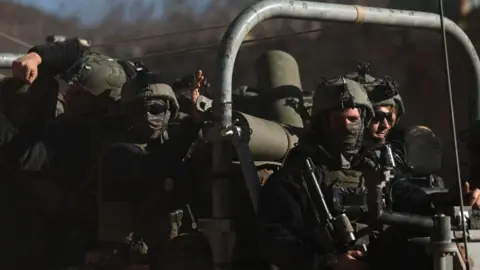 EPA
EPAAhmed al-Sharaa knew he could not resist Israel’s US-backed power.
“Syria is exhausted by war regardless of whether Israel is strong or not. Syria needs to be stronger and more developed. We do not have any aggressive plans against Israel. Syria will not be a threat to Israel or anyone.”
Ahmed al-Sharaa’s agenda is overwhelming.
Syria is a broken country that he says he wants to repair and revive, rife with challenges that could make his task impossible.
HTS is not the only armed group in Syria and there are several groups that want to destroy his fledgling regime. HTS’s enemies within the Islamic State network could try destabilizing attacks.
Syrians’ desire for revenge against those who killed Assad – and the former president himself – could explode into destructive public rage if HTS cannot demonstrate that it is bringing to justice those who held him back. Syrian throats for so long.
Ahmed al-Sharaa, correctly, sees Syria as a fulcrum in the heart of the Middle East.
“Syria is an important country with a strategic location, has great influence in the world, look at how America is present there, on the other hand is Russia and regional countries such as Türkiye, Iran and Israel .”
He said that is why the outside world should help Syria recover.
That’s also why powerful countries may not let that happen.


